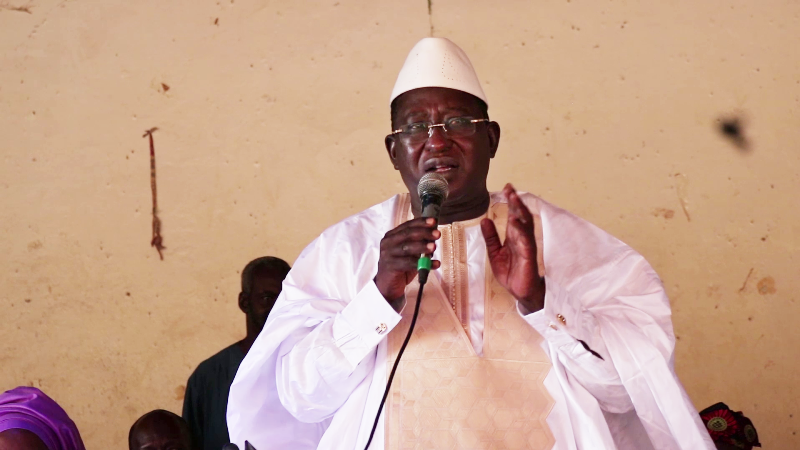By M. A. Diallo
Soumaïla Cissé, President of the Union for Republic and Democracy (URD) political party died from complications of Covid-19 on Friday, December 25, 2020 in Paris, France, sparking an outpouring of grief and mourning across Mali. Cissé was the main political opponent of the deposed regime of Ibrahim Boubacar Keïta, Mr. Cissé had made few public appearances since his release from terrorist groups who had held him hostage for six months on October 5, 2020.
The bad news came shortly before 10 a.m. Soumaïla Cissé died on Christmas Day in Paris, France. His biological and political family confirmed that he was ill with Covid-19. Aged 70, the native of Niafunké, Timbuktu region, marked the political history of democratic Mali with standout performances in three presidential elections.
In 2002, Cissé surprised everyone with his score in the first round of the presidential election and faced General Amadou Toumani Touré (ATT) in the second round. He lost the election. During ATT’s ten year tenure, Cissé faded from the domestic political scene, opting for prominent international posts, including the presidency of the West African Economic and Monetary Union (UEMOA).
In 2013, he faced Ibrahim Boubacar Kéita in the second round of the presidential election. The latter, supported by religious leaders, won the election with 77% of the vote. Soumaïla Cissé acknowledged his defeat and joined the opposition. He ran for the legislative elections of November 2013 and was elected in the first round in his hometown, Niafunké. Together with other political parties and civil society organizations, he provided ample opposition to Ibrahim Boubacar Keïta throughout his first five-year term. In 2017, Soumaïla Cissé and his allies opposed the constitutional revision and won the cancellation of the referendum after several weeks of protests.
The following year, he ran for president again. He forced incumbent President Keïta to go to the second round, the first in Mali since the advent of democracy. He lost again, according to the results proclaimed by the Constitutional Court. Unlike in 2013, Soumaïla Cissé did not admit defeat, but his rejection of the result did not spark violence.
Cissé’s loss in 2017 put him back in the opposition camp, but his renewed hostility with IBK was ended abruptly on March 25, 2020, when armed terrorists took Cissé Cissé hostage in the middle of his legislative election campaign in Niafunké. By the time Cissé was released on October 5, Ibrahim Boubacar Kéita had already been overthrown by a military coup d’état on August 18.
Soumaïla Cissé’s death has disturbed the political scene, and Mali as a whole.


